Running towards the light

The race she ran on June 14, 2020 wasn’t Gillian Denempont’s fastest, but it was memorable.
A multiple Comrades finisher, 61 year old Gillian has been running for more than three decades. The friends she made at running clubs and races became her family, the weekly club runs her therapy.
In 2019 she was diagnosed with major depressive disorder and she ended up in a care centre.
When Covid-19 struck, running clubs were closed and the annual road race calendar was cleared. In its 99th year Comrades 2020 became a virtual race meaning athletes could run on their own routes and log their times using their fitness devices.
Then, two days before the virtual Comrades, Gillian was told she wouldn’t be allowed out of the care centre due to the risk of the virus.
She was devastated. But on the morning of the race, she decided to run anyway. This is the story of Gillian Denempont and her amazing Comrades race.
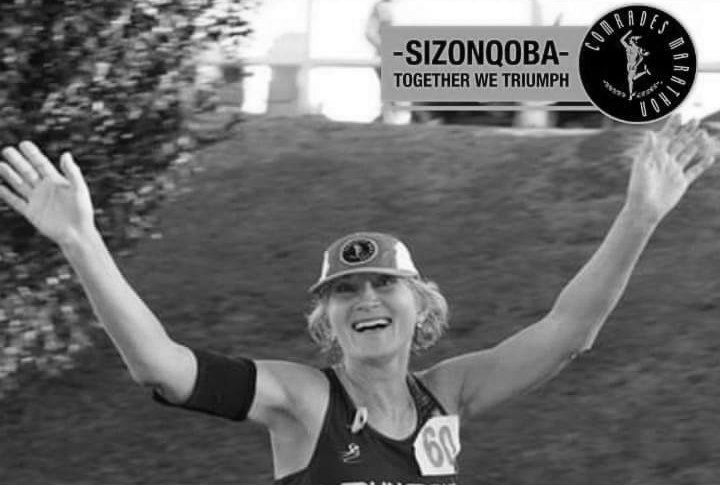
In the leafy Johannesburg suburb of Parktown West sits the Park Care Centre, a non-profit organization providing nursing care and support to 320 elderly or frail people.
For Gillian it has been home since June 10, 2019 when she was sent there after being diagnosed with depression by doctors at the Helen Joseph hospital.
Her state pension pays her rent. “I couldn’t support myself. You know, I lost my job. And I didn’t want to be a burden to anybody,” she says.
The depression has been debilitating.
“I never really understood it, or I didn’t know it, but it has probably been a lifelong depression. By the age of seven I wanted to kill myself. Obviously I realized that killing myself is not the answer, but feeling like you want to every single day of your life is really very hard.
“Then to lose my own children on top of that was just totally devastating for me.”
Her baby girl was born in 1987.
“I would have called her Jenny. The cord was around her neck. Full term, last twenty minutes. So she died and I was saying: ‘wake her up, wake her up.’ It was very hard.”
Gillian started running to deal with the grief.
Then, in 1993, her son, Andrew, died in a car accident. He was 12 years old.
“I was absolutely broken and I can tell you that if I didn’t have running, I probably wouldn’t be here.”
She is quiet for a few moments, then she says: “Look, I know there are other people who’ve lost everything, like their entire family in a tsunami or floods. Everyone has got their challenges, and this has just been mine.”
Still, she can’t help but wonder what her life could have been like.
are“You understand that death is a part of life. And so you are more interested in living your life. I am spiritual. I believe in God and in the universe and truth in all things. But everything is a struggle. Like a shocker of a life,” she says with a sad laugh.
To be stuck here in the care centre during the Covid-19-pandemic has been almost too much to bear.
Because the elderly are particularly vulnerable to the virus, Park Care is still in strict lockdown months after restrictions elsewhere have been lifted.
“It has been depressing for everyone. It makes me moody and it makes me reclusive. I don’t want to see people or talk to anyone. I get angry. And I obviously haven’t seen my psychologist at Helen Joseph hospital during the shutdown,” Gillian says.
“I do want to get out of here. I want to find a new place to live. I want to work again. I am still capable of working. The thing is now I am 61. I think at least for the next ten to fifteen years I can be useful to society. I am just so frustrated.”
By the age of seven I wanted to kill myself .
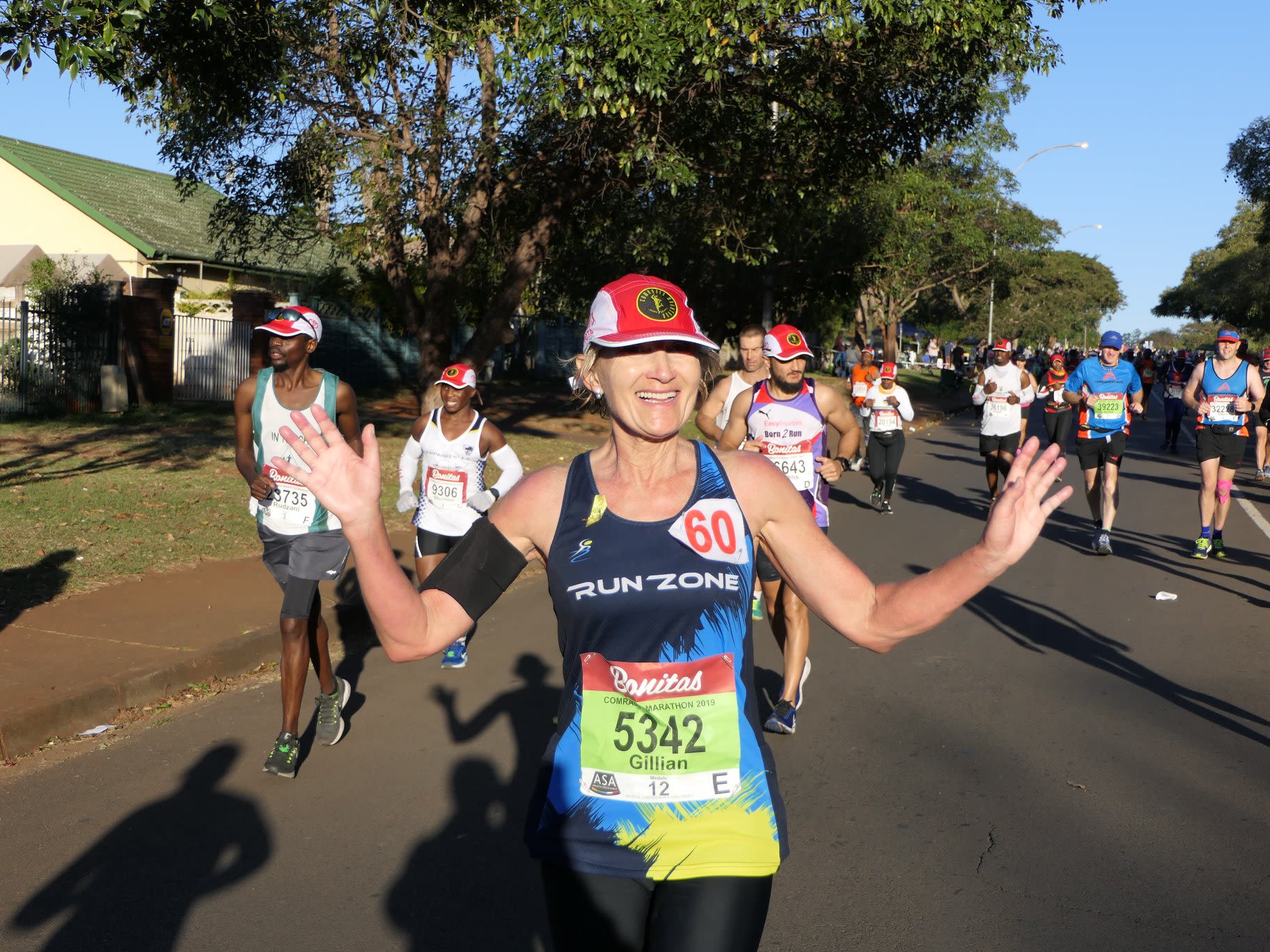
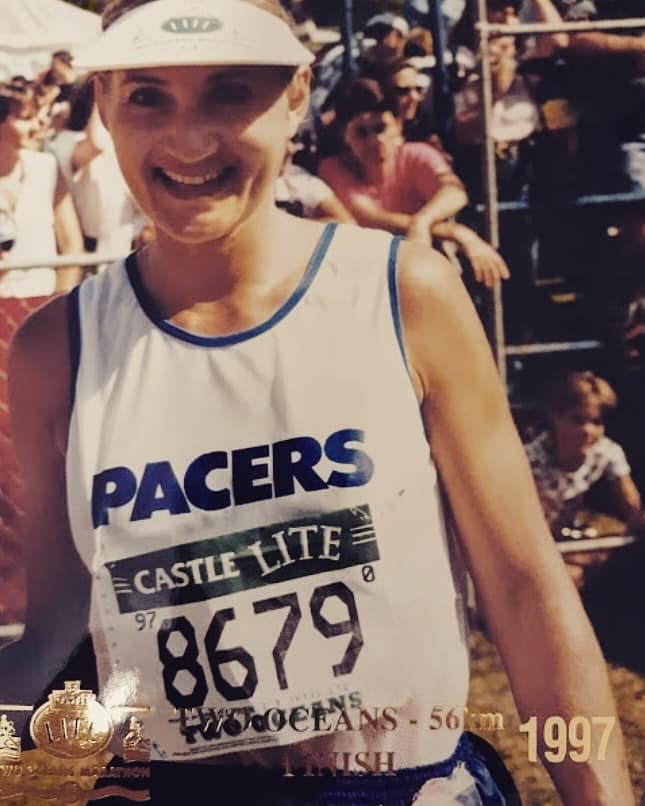
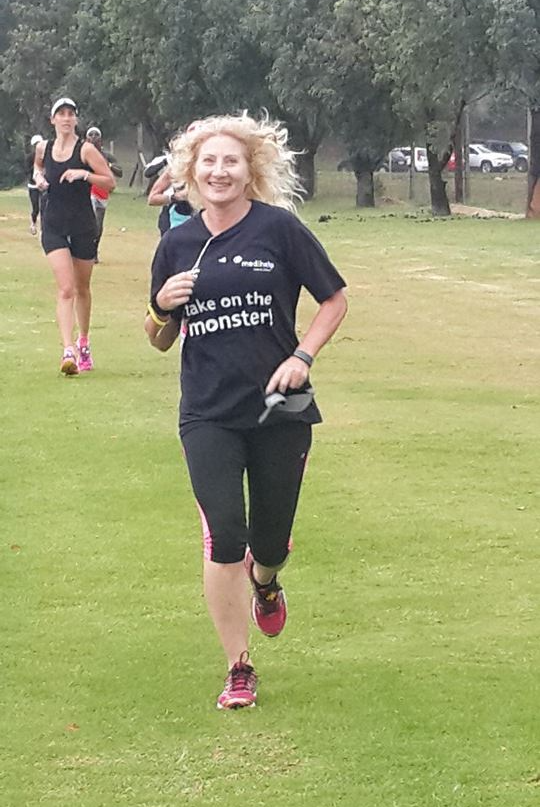
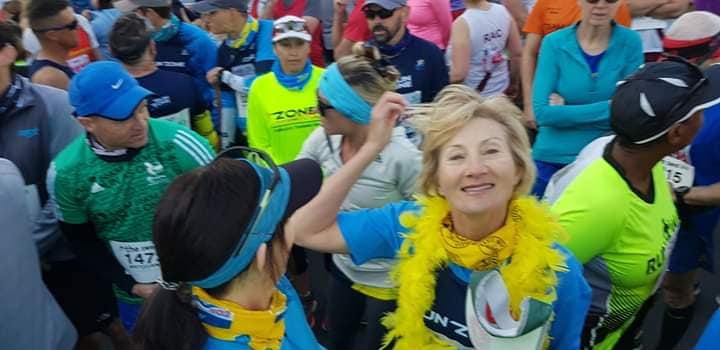
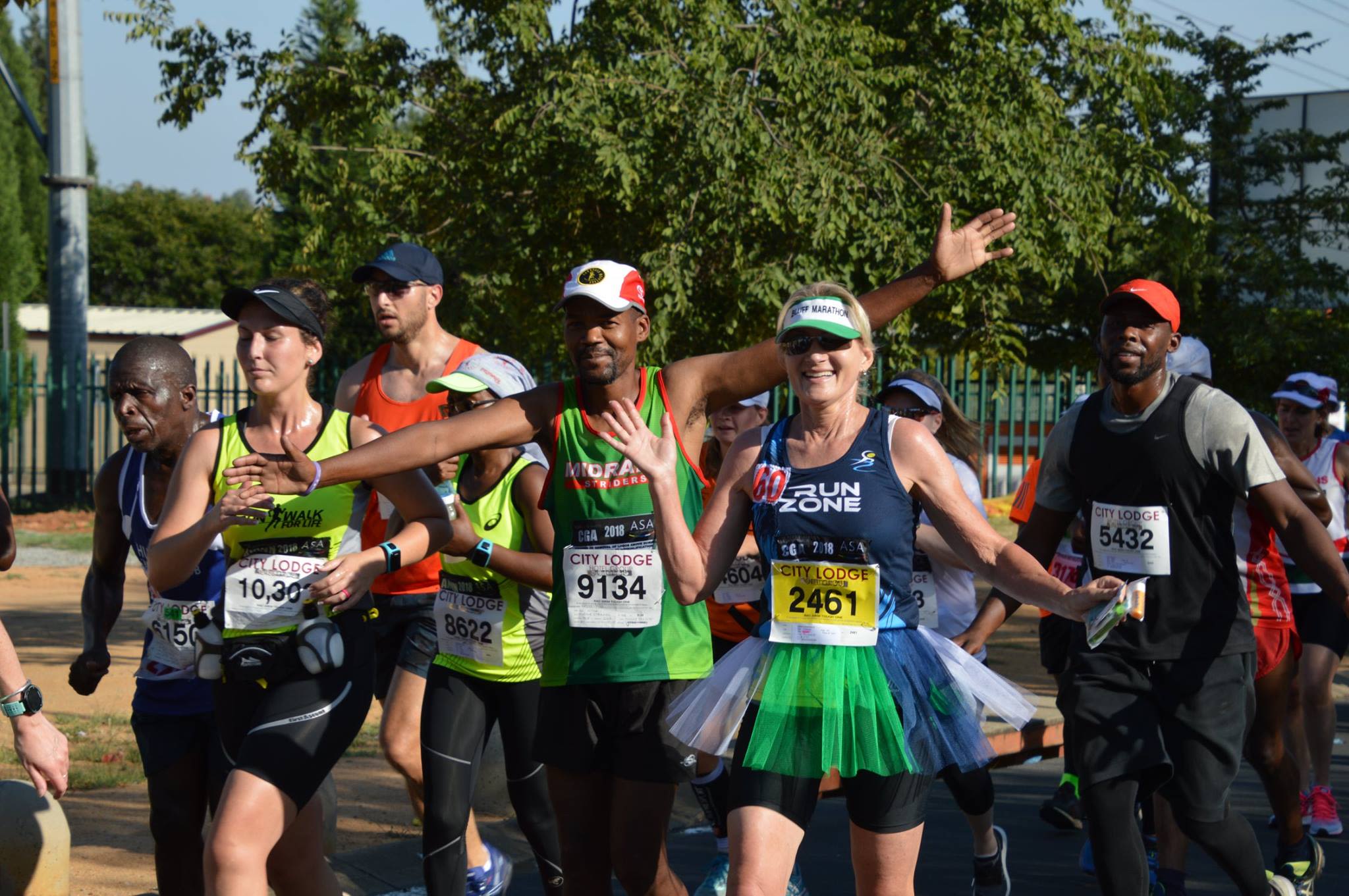
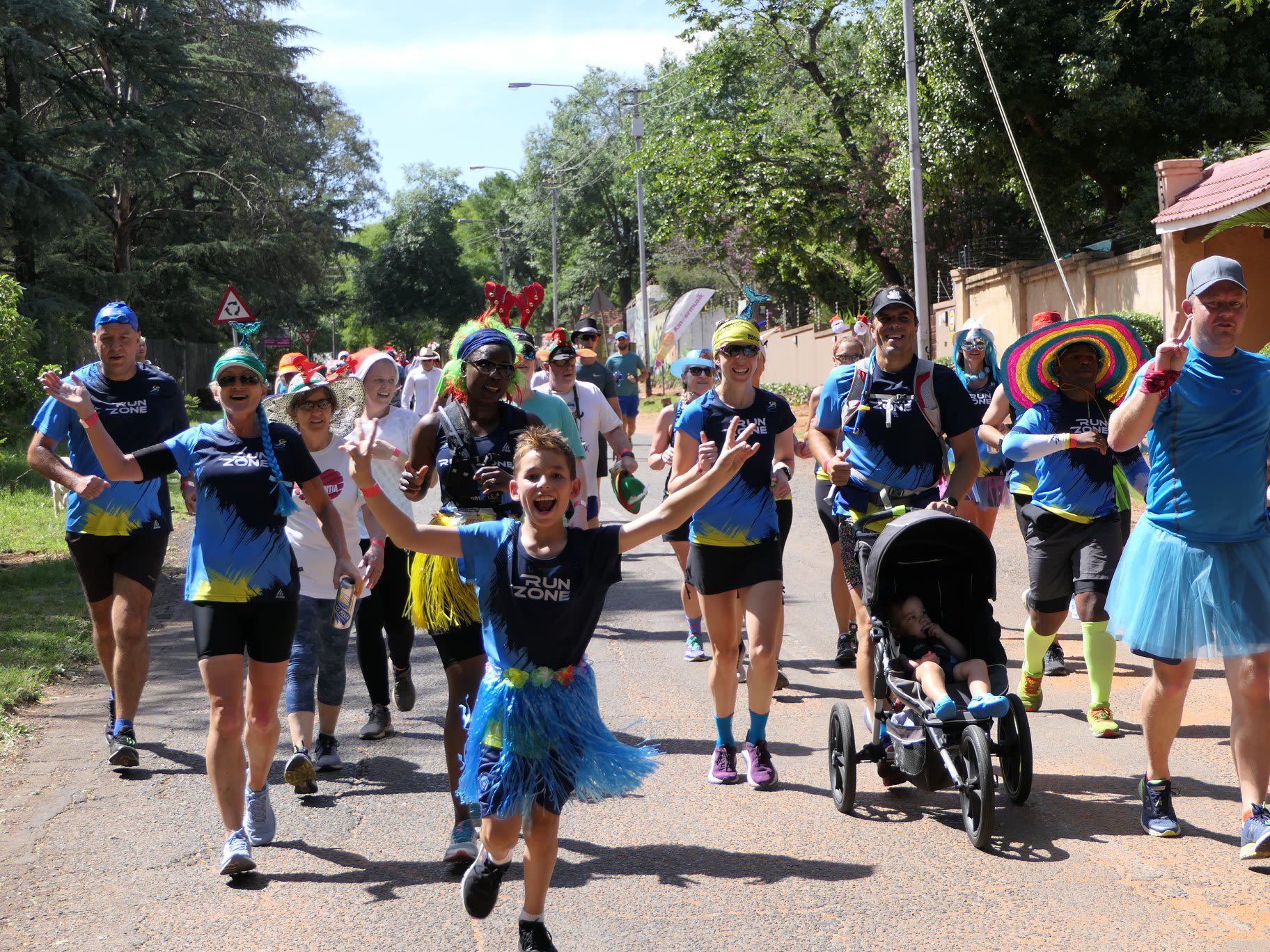
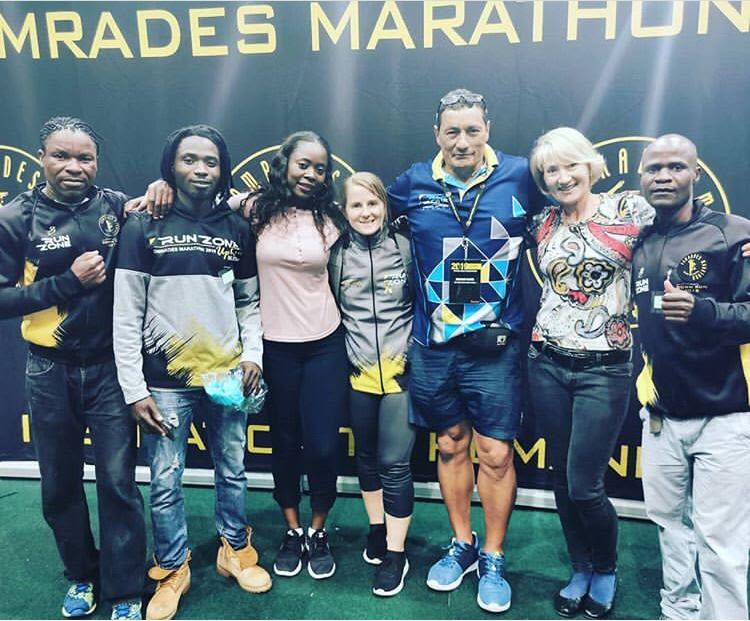
Pictures courtesy of Gillian Denempont
Pictures courtesy of Gillian Denempont
It was the legendary Comrades runner Bruce Fordyce who inspired her to start running back in 1987. He made it look so easy, Gillian says.
It was far from easy. She remembers collapsing on the lawn after a 5 kilometer run, utterly exhausted.
But by 1989 she ran her first Comrades and in 2019 she got her 13th Comrades medal, a bronze.
Running has given her a sense of purpose. “I never really felt like I amounted to much, but instead of taking a negative route, I took a positive route.”
She says it has helped her to cope with the sadness that has always been part of her life.
“It gives you a wonderful freedom and peace of mind. You get all of the endorphins and the lovely feel good hormones that actually take away that dreadful feeling.”
It gives perspective when you stand in the Comrades line and you see there are people with cancer.
Running also filled her life with friends. “I probably know thousands of people,” she says.
It is her friends who keep her going, who help her to enter races when she can’t afford to. She calls them her heroes.
But to many of them she too is a hero. Lately she’s been running good times, even making podium.
“I don’t really think I inspire people. I sometimes think those are just words when they say ‘oh, you’re so inspiring, Gillian’.
“You know, you meet people on the road and they tell you… I don’t always talk. Sometimes I listen. They tell me all the things that are happening in their lives. You know, they talk to me about their naughty children and I say how lucky they are to have them.
“There is always fun and laughter. But the link to all of this is that many of those runners have suffered huge losses in their lives and that is what started them running. If you talk to some of them you find out that they’ve lost children.
“It puts everything into perspective when you stand in the Comrades line and you see that there are people with cancer who want to do something before they die. There are blind runners. There are people who don’t have limbs. There is one guy who runs on crutches the whole way. There are people who are so incredible and you think well, there’s nothing wrong with me. I’ve got all my limbs, legs, arms, everything is still okay. You’ve got nothing to write home about. It does put things into perspective.”
After learning in June that she would not be allowed to run outside the care centre anymore, Gillian was devastated. It felt like her lifeline was being taken away from her.
“Of course it isn’t just about me. It is about the 300 other people as well. They can’t just have individual rules for everyone,” she says.
But it hurt.
On the Sunday morning of the race, she was faced with staying in her room, following her fellow runners’ Comrades stories on social media.
But running is about perseverance, about going for a run even if you don’t feel like it, making that final effort to the finish line even if your body is screaming. It is about not giving up.
That is the runners’ spirit that kicked in for Gillian that morning. At 6:58 she started running inside the Park Care complex. One lap covers just 190 meters – down the stairs, past the gate, then the admin building, past the laundry, the main kitchen. Then she did another. And another. And another. She didn’t stop until late afternoon when she had done half a Comrades - 45 kilometres.
It took a very long time and all her mental strength.
“It is nothing for me to run 15 kilometers. Nothing. But over here it is really hard to run even five. It is tight and it is uncomfortable and it is on concrete. And it is the same view all the time. It’s like being in a fishbowl.”
On the running app Strava her route, in bright orange, formed a thick figure 9.
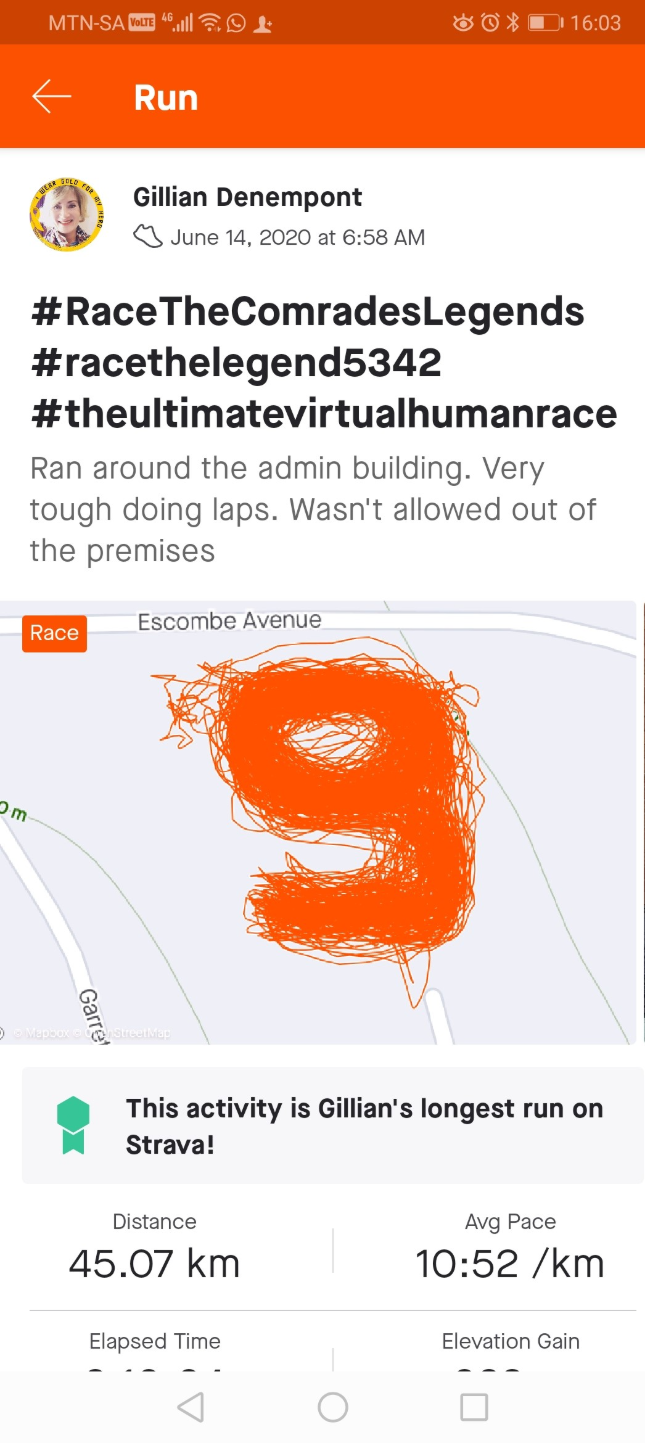
Gillian's record of her Comrades run on the running app Strava.
Gillian's record of her Comrades run on the running app Strava.
It has been three months since Gillian’s Comrades and while South Africa’s lockdown is largely over, at the Park Care Centre the residents are still locked in. Gillian is still running her 9-shaped route.
In August she finished the Joburg North half marathon in just under three hours.
In September she took up the Rainbows and Smiles Run for a Reason challenge, running every single day for a month to raise awareness of childhood cancer. Each run is dedicated to a child that has suffered from cancer.
In thirty days Gillian ran more than 200 km on her 190 m route, dedicating each day to another young cancer survivor. On September 9 she changed her route so that the Strava record would show the shape 8. This was because her run was dedicated to the twins Seba and Jack and it was their 8th birthday. Seba had cancer and Jack donated bone marrow to save his brothers’ life.
Gillian's September. She dedicated each day to a different child who has suffered from cancer. Images: Rainbows and Smiles and Strava / Video compiled by Inge Kuhne
Gillian's September. She dedicated each day to a different child who has suffered from cancer. Images: Rainbows and Smiles and Strava / Video compiled by Inge Kuhne
She follows her running friends on social media and dreams of running outside once again. “I get a little bit jealous,” she admits. “I see them all. They started the club training and I’m not there.”
But the hope keeps her alive. And that keeps her running.
